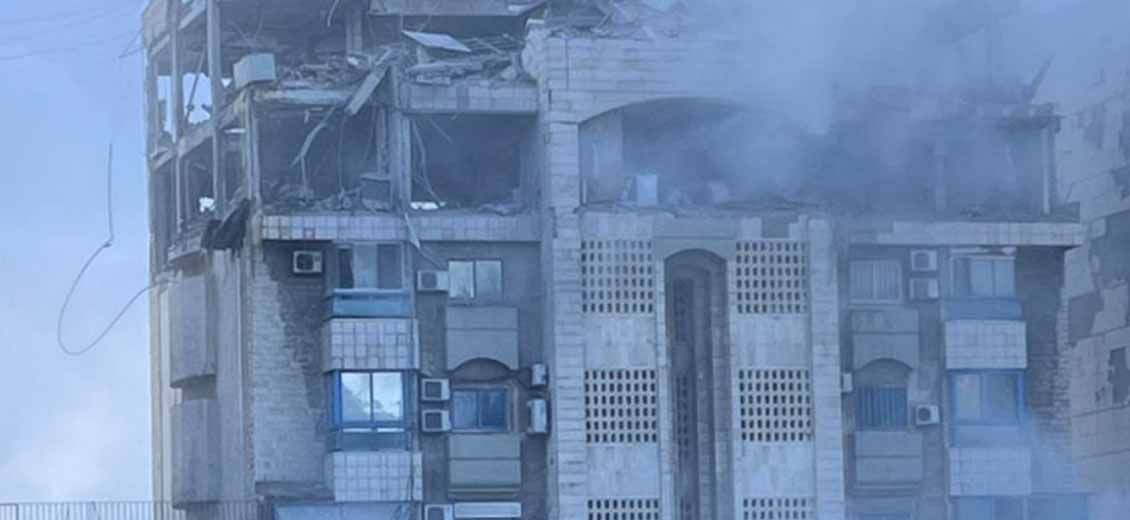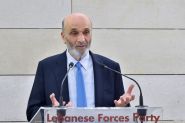
The Israeli army announced on Tuesday evening that it had killed two Hezbollah commanders, Mohammad Cassir, in charge of the “transport of troops” between Lebanon and Syria, and Zoulfikar Hannaoui, head of the “Imam Hussein Battalion”, during air strikes on the southern outskirts of Beirut.
Three persons were killed during the two airstrikes carried out late Tuesday afternoon against this area.
The first one targeted a building close to Al-Zahraa Hospital, between the Jnah and Ouzaii regions. The Israeli army later claimed responsibility for the “precise strike on the Lebanese capital Beirut.”
Another Israeli raid targeted the roundabout near the Kuwaiti embassy, deeper inside Beirut.
These attacks led to the closure of the main Beirut Airport road.
Preliminary information indicates that these strikes were aimed at two personalities. Their identity is yet to be confirmed.
Amid the dramatic developments, Israel confirmed that its ground incursion in south Lebanon will be “limited and will only target Hezbollah bases.”
The Israeli army announced destroying more than 700 Hezbollah targets in Aita al-Shaab and the border area. Avichae Adraee, spokesperson for the Israeli army, stated on his X account that “tens of tons of explosives and Hezbollah properties and headquarters” were the targets.
Adraee also pointed out that “Israel carried out dozens of targeted operations in South Lebanon.”
In this context, the Israeli Channel 13 stated that “Israel destroyed 30 tons of anti-tank mines and 450 RBG rockets in south Lebanon.”
According to Al-Arabia Saudi Television, the Israeli army mobilized four reserve brigades for operations in north Israel. Israel’s Channel 14 had indicated that “the Israeli army destroyed a large number of attack tunnels in Lebanon through ground military activities.”
Israeli warplanes targeted Ibl al-Saqi-Kawkaba Road, separating Marjayoun and Hasbaya cazas again. A squadron of Israeli drones flew over villages and towns of the Marjayoun district, amid intensive reconnaissance and drone flights over Tyre and the sea coast.
Fighter jets also breached the sound barrier in two simultaneous waves in the airspace of Marjayoun, Zahrani and Iqlim el-Kharoub.
Earlier, Shihabiya, Yarine, Al-Jabin, Zebqine, Tayr Harfa and Marwahin were also the targets of Israeli fighter jets.
Sonic booms also sounded above Sidon.
In the Beqaa, warplanes conducted 10 consecutive raids on Baalbeck-Hermel. The plains of Sarein al-Tahta and Rasm al-Hadath were also raided.
Hezbollah announced the shelling of Kfar Giladi with rocket weaponry. In another statement, the pro-Iranian group claimed responsibility for “targeting a gathering of Israeli soldiers, in Metula, and achieving direct hits.”
In the meantime, the Israeli army affirmed the detection of “30 rockets fired towards the Galilee.” Sirens also sounded in Haifa, Acre, Nahariya, Upper and Central Galilee.
Moreover, Hezbollah claimed “raiding a gathering of Israeli soldiers in Ramtha and Samaka bases, in the Kfar Shuba hills.”
Three persons were killed during the two airstrikes carried out late Tuesday afternoon against this area.
The first one targeted a building close to Al-Zahraa Hospital, between the Jnah and Ouzaii regions. The Israeli army later claimed responsibility for the “precise strike on the Lebanese capital Beirut.”
Another Israeli raid targeted the roundabout near the Kuwaiti embassy, deeper inside Beirut.
These attacks led to the closure of the main Beirut Airport road.
Preliminary information indicates that these strikes were aimed at two personalities. Their identity is yet to be confirmed.
Amid the dramatic developments, Israel confirmed that its ground incursion in south Lebanon will be “limited and will only target Hezbollah bases.”
The Israeli army announced destroying more than 700 Hezbollah targets in Aita al-Shaab and the border area. Avichae Adraee, spokesperson for the Israeli army, stated on his X account that “tens of tons of explosives and Hezbollah properties and headquarters” were the targets.
Adraee also pointed out that “Israel carried out dozens of targeted operations in South Lebanon.”
In this context, the Israeli Channel 13 stated that “Israel destroyed 30 tons of anti-tank mines and 450 RBG rockets in south Lebanon.”
According to Al-Arabia Saudi Television, the Israeli army mobilized four reserve brigades for operations in north Israel. Israel’s Channel 14 had indicated that “the Israeli army destroyed a large number of attack tunnels in Lebanon through ground military activities.”
Israeli warplanes targeted Ibl al-Saqi-Kawkaba Road, separating Marjayoun and Hasbaya cazas again. A squadron of Israeli drones flew over villages and towns of the Marjayoun district, amid intensive reconnaissance and drone flights over Tyre and the sea coast.
Fighter jets also breached the sound barrier in two simultaneous waves in the airspace of Marjayoun, Zahrani and Iqlim el-Kharoub.
Earlier, Shihabiya, Yarine, Al-Jabin, Zebqine, Tayr Harfa and Marwahin were also the targets of Israeli fighter jets.
Sonic booms also sounded above Sidon.
In the Beqaa, warplanes conducted 10 consecutive raids on Baalbeck-Hermel. The plains of Sarein al-Tahta and Rasm al-Hadath were also raided.
Hezbollah announced the shelling of Kfar Giladi with rocket weaponry. In another statement, the pro-Iranian group claimed responsibility for “targeting a gathering of Israeli soldiers, in Metula, and achieving direct hits.”
In the meantime, the Israeli army affirmed the detection of “30 rockets fired towards the Galilee.” Sirens also sounded in Haifa, Acre, Nahariya, Upper and Central Galilee.
Moreover, Hezbollah claimed “raiding a gathering of Israeli soldiers in Ramtha and Samaka bases, in the Kfar Shuba hills.”
Read more



Comments